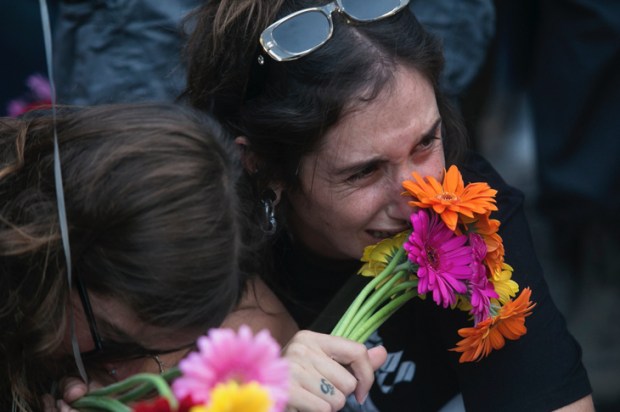Judging by the outcome of the European elections, it would appear that the globalist consensus has been rejected by voters. The results indicated a sharp rise in support for anti-immigrant and climate-sceptic parties. With more than twice the vote share, Marine Le Pen’s hard-right National Rally (RN) defeated Emmanuel Macron’s centrist Renaissance party, forcing the French President to abruptly appear on television to dissolve the National Assembly and declare a snap election for the end of June.
The rightward shift was not confined to France. In Germany, the hard-right Alternative for Deutschland (AfD) beat the Social Democratic party (SPD) of Chancellor Olaf Scholz. With only 14 per cent of the vote, the centre-left SPD had its worst performance in almost a century in the national election. All things considered, the Greens took the hardest hit, dropping to just 7 per cent of the vote following the elections held on 6 to 9 June. This was the second-biggest decline of any party, resulting in them holding 53 of the 720 seats in the EU legislature.
Nevertheless, the most intriguing conclusion to be drawn from this is the demographic swing. In what some commentators dubbed the ‘green wave’, young people overwhelmingly supported green parties in the last European election in 2019. Journalists and scholars always try to coin a catchphrase to capture the zeitgeist. We’ve had the cringe-inducing ‘youth quake’, a global left-wing Millennial ‘uprising’. Now we have a slightly cooler sounding one: the great gender divergence. Dr Alice Evans uses it to describe how Gen Z men have shifted to the right globally. In France, 32 per cent of voters between the ages of 18 and 34 supported the RN, more than twice as many in 2019. In Germany, the situation was similar. This was the first European election where teenagers as young as sixteen could vote. The AfD won almost 17 per cent of votes in the 16-to-24 age group.
Social media has a big impact on voting preferences, despite the fact that it can be difficult to determine causality from correlation. Prior to the elections, the European elite was primarily concerned about the influence of TikTok, the effect of rising anti-immigration rhetoric and the normalisation of right-wing youth activism. The AfD achieved a record 16 per cent of the vote in the polls, thanks to the support of the under-thirties, but the French results offered a damning indictment of mainstream politics. This was most likely due to the candidates’ skillful integration of all these elements into a sharply dressed populist package.
Jordan Bardella came from humble beginnings. The only child of a one-parent family, Bardella grew up in a housing estate north of Paris. Coming from a working class background, he rose to become the National Rally’s brightest star, being elected party president in November 2022. Both he and his team are extremely active on TikTok. The telegenic 28-year-old has amassed a 1.5 million-strong fan base on the platform, where he uploads short videos of himself saying controversial things that would be more at home on online bulletin board 4chan. Bardella embodies the modern tech-savvy politician – fusing social media interaction with politics. ‘I’m trying to politicise young people,’ Bardella told France Inter a few weeks ago.
TikTok has become the weapon of choice for electioneering in the 21st century. There is an account for every would-be right-wing politician. Nigel Farage’s 630,000 followers have watched his videos over ten million times since the UK election was called. One of them features him approaching a fruit stand and exclaiming, ‘Cor! Lovely Melons,’ in a Carry On-style quip reminiscent of Sid James. I can only speculate as to how much of this influences Gen Z. However, there’s no denying that the transition from television to online communication is giving rise to a new type of politician.
Social media is at the forefront of the attention economy. In the context of politics, it reduces confected outrage and dull, hour-long speeches on fiscal rules into short, easily digestible pieces. The online world has become a battleground. It must be remembered that the meme is arguably the most effective example of digital warfare ever created on the Internet. In a truly self-referential manner, ‘the left can’t meme’, is a meme in and of itself. If a picture says a thousand words, a six-second TikTok video conveys a million.
Across France, Bardella’s ability to connect with and win over frustrated voters cuts through the generational divide. His working class roots make him relatable to the nation’s small business owners, impoverished farmers taxed into oblivion by net-zero madness, and urban Parisians fleeing the high-immigration, crime-ridden banlieues for the safer southern towns and countryside.
The media denigrates them with the meaningless term ‘far right’ regardless of their age. These people are patriotic social conservatives who adore their culture yet have been mockingly dismissed as nothing more than bigots, similar to how Brexiteers in Britain were called ‘gammons’. All of these people are united by a common sense of pride in their country, in contrast to their leaders. For instance, a petition with thousands of signatures was created by the Green party to have the word ‘Germany’ removed from the party’s manifesto in 2022. Then there was the plan to deny a third of native-born Germans the opportunity to apply for government jobs so that migrants could apply instead. Or perhaps it was when Marie-Therese Kaiser was fined for citing official crime statistics that showed that Afghan migrants commit rape at disproportionately higher rates than native Germans. Voters were never offered the opportunity to reject what the global elites were offering. Now they’ve had their say.
It seems counterintuitive that young people have accounted for such a sizeable portion of the right-wing vote. Received wisdom dictates that as you age, you become more conservative. It seems that TikTok has Benjamin Buttoned this widely held belief. Across Europe, feelings of injustice and resentment have been fuelled by economic stagnation, cultural decline, rising inequality, and fierce competition for scarce resources as a result of mass migration and climate hysteria.
The youth have gone wild. Why it took them so long is a mystery.
Got something to add? Join the discussion and comment below.
You might disagree with half of it, but you’ll enjoy reading all of it. Try your first month for free, then just $2 a week for the remainder of your first year.













